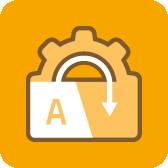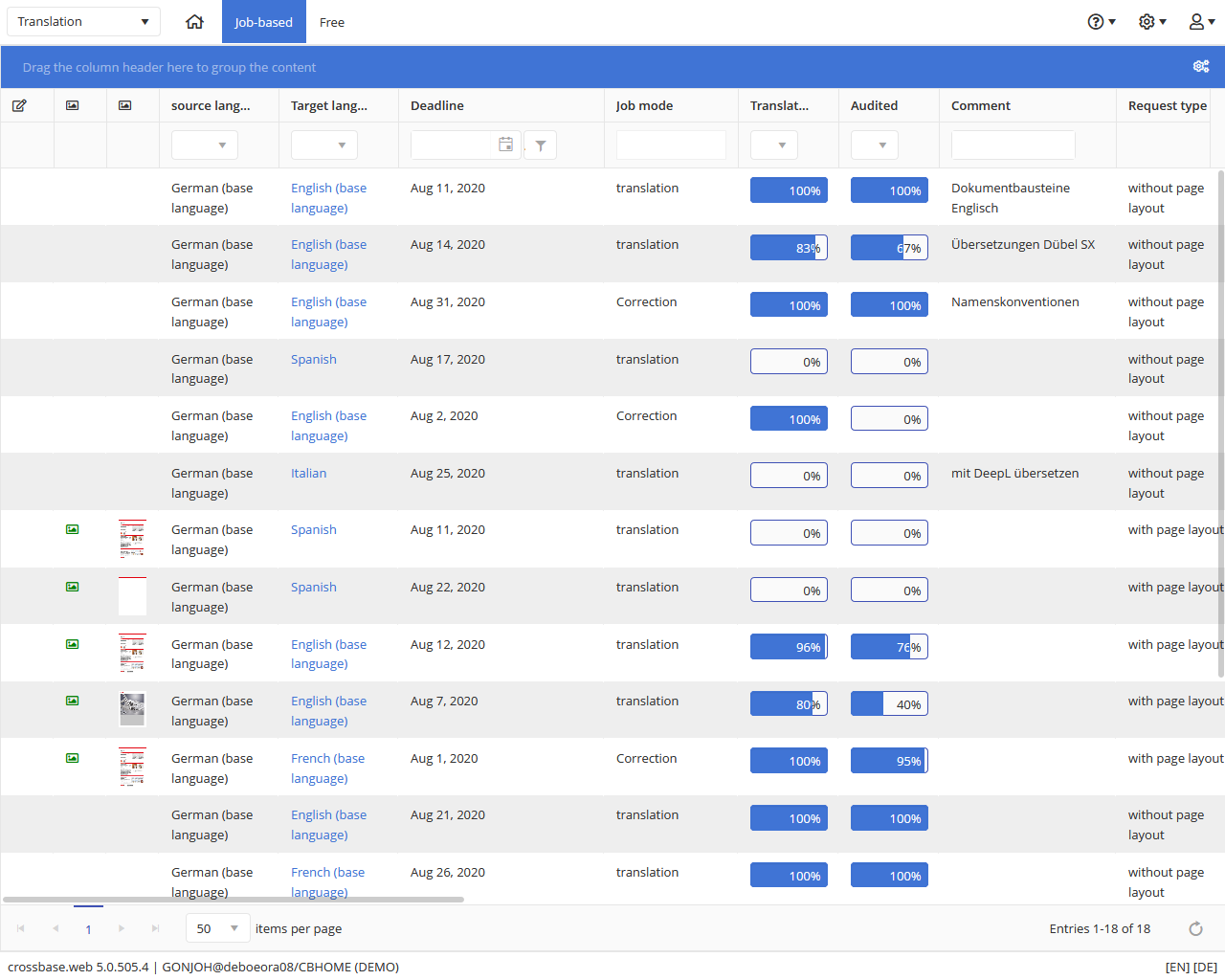

Translation management
The crossbase translation process – fluent in all languages
With a standardized and database-driven translation process, up-to-date product communication is made possible in all markets. The translation can be done directly in the crossbase database, externally at an agency or in the national company. Each text is given a status so that it can be seen at any time whether it is being translated and whether it has been checked.
Untranslated text
Long texts and recurring text modules can be used several times and therefore only need to be created and translated once. This ensures a uniform language, avoids doing the same thing twice and significantly reduces translation costs. The texts to be translated can be limited to publications or output media. The translation requirement is determined precisely before export. Only texts without translations and texts marked for revision are exported. All language- and country-specific texts and media files can be versioned. Translation requirements are determined using a proven workflow based on the text status. With crossbase, it is easy to manage country-specific languages with small variations from a main language. It is not necessary to enter all language and country variants, only the specific differences. This concept avoids up to 98% of these translations.
TMS, Excel, DeepL & Co.
TMS (Translation Memory System) and machine translation aids can be connected via standard interfaces. Translation jobs are exported in XML, XLIFF or Excel format. The translation can thus be carried out in systems such as across, SDL Trados or directly in Excel. For printed publications, the corresponding PDF documents can also be exported and linked as a visual aid. By connecting services such as DeepL or Google Translate, which use artificial intelligence for translation, texts can be pre-translated quickly and easily and then conveniently edited using the web client.
We respect your privacy
AThis website does not use cookies to collect visitor data or behavior!


